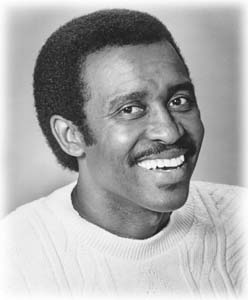![[Metroactive Events]](/events/gifs/events468.gif)
![[Metroactive Events]](/events/gifs/events468.gif)
[ Metro | Metroactive Central | Archives ]
Raye of Sunshine
 Engineering Success: Carl Raye hopes to influence a generation of African American children at his Courtland Esteem School.
Black history is a yearlong project for South Bay engineer-turned-comedian Carl Raye By Nicky Baxter IT'S THAT TIME of the year again: African Awareness Month--28 days of speechmaking, dances and dinners. TV will trot out hits from the past, replaying biographies focusing on the usual cast of great men and women: the Tuskegee Airmen, Maya Angelou, Malcolm X and, inevitably, Martin Luther King Jr. And while noncommercial TV does a much better job of bringing black history up to date, it all seems somehow disconnected from the here and now. The brainchild of historian Carter G. Woodson, "Negro History Week," as it was initially called, was considered revolutionary in the 1920s when it was inaugurated. Bear in mind that Africans in America (the vast majority of whom were male) were being lynched and often burned alive at the horrifying rate of twice a week. At the same time, the pernicious myth of African inferiority was widespread. Yet with few exceptions, African Awareness Month has become stagnant, a perfunctory ritual that "socially conscious" blackfolk act out to assuage their guilt for being do-nothings the other 11 months. Local comedian and activist Carl Raye, however, has nothing to feel guilty about. For more than a decade, Raye has come to represent the spirit and substance of African Awareness Month. "We don't wait until Feburary to be active; you've got to do it all the time," he says. "Every February [event organizers] do the same thing. They show you the civil rights movement, but they don't show you about the Tulsa, Okla., riots in the 1920s. Tell me about Willie Lynch. Tell me about our accomplishments." Though they haven't garnered much press play, what Raye and his wife, Brenda, have accomplished thus far is no small feat. The two run Courtland Esteem School from their home in the upper regions of Mt. Hamilton. As we speak, in the adjoining living room/classroom, a handful of kids are busy taking turns at the computers. Noisy but remarkably polite, the children refer to their instructor as "Mr. Carl." Before my arrival, AIDS was the topic of the day. "Our curriculum," he explains, "is about the same as the public schools.' We give the kids a solid foundation. The only difference is that we also teach the kids about their identity as African Americans," an area public schools have historically neglected, according to the Alabama-born activist. Perhaps just as important, the Rayes place heavy emphasis on practical matters such as business skills: "We blacks have been educated to work for others. No one teaches us how to run our own businesses. The man who knows his history has power; the man who doesn't is dependent." The slightly frail-looking 52-year-old practices what he preaches. A former engineer, the Tuskegee graduate decided that he'd worked for others long enough and turned to standup comedy for relief in the mid-1970s. He's appeared on numerous stages across the country and on Black Entertainment Television, but he says he's cutting back in order to focus on motivational speaking tours. Whatever else he does, Raye intends to remain financially independent, something many Africans seem fearful of. When asked why Africans here and elsewhere seem to find it difficult to do business with one another, Raye paraphrases one William Lynch, a plantation owner in the antebellum South. "William Lynch gave a speech, I think it was 1712, where he said that the best way to maintain control over us is to pit us against one another and it will become a self-perpetuating thing. You can see it to this very day." This issue is clearly a concern for Raye; indeed, he has drawn up a checklist titled "Why Black Organizations Have Failed in the Past" that details self-defeating behavior practiced by blackfolk. THE COURTLAND Esteem School grew out of the Rayes' concern over the predicament of young black males. "Someone should do something," Carl thought--and decided that he was that someone. Who was better qualified to inspire young bloods to stick to the books if not he, a college graduate in electrical engineering? Two months later, Raye escorted four boys on a tour of historically black colleges. The program mushroomed with incredible speed; in two years, Raye would run up a bill of $9,000 dollars on his credit card to finance a tour of 45 high school youths. Today, the program has turned into something of an institution, thanks to the patronage of South Bay communities and businesses. This past November, the tour took a total of 110 students and escorts to visit Morehouse, Spelman, Morris Brown, Clark, and Raye's alma mater, Tuskegee Institute. Carl Raye has received commendations from Congressman Norman Mineta, Santa Clara County Supervisor Blanca Alvarado and other government officials for his work. More importantly, Raye is living proof that African Awareness extends beyond February. [ Metro | Metroactive Central | Archives ]
| ||||||||||||||||||||||||||||||
This page was designed and created by the Boulevards team.
Copyright © 1997 Metro Publishing, Inc.